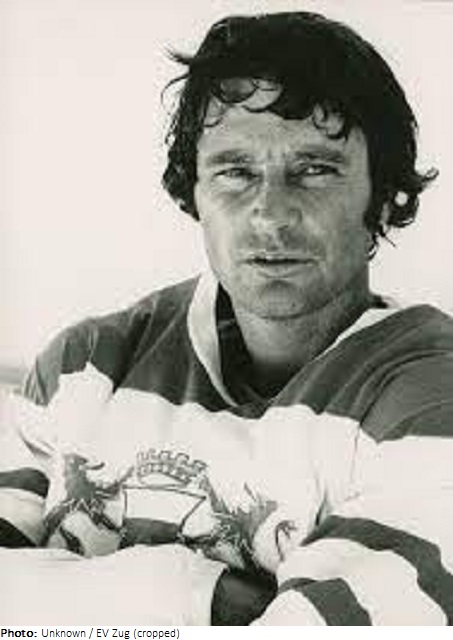
| Roles | Competed in Olympic Games |
|---|---|
| Sex | Male |
| Full name | Gérald•Rigolet |
| Used name | Gérald•Rigolet |
| Born | 26 March 1941 in Dirlaret, Fribourg (SUI) |
| Measurements | 172 cm / 71 kg |
| Affiliations | Villars HC, Villars-sur-Ollon (SUI) / HC La Chaux-de-Fonds, La Chaux-de-Fonds (SUI) |
| NOC |  Switzerland Switzerland |
Gérald Rigolet was a goaltender who competed for Switzerland at the 1964 and 1972 Winter Olympics. Rigolet also played for Switzerland at the A World Championships in 1972 and the B World Championships in 1963 and 1971. He became a legend, when he helped Switzerland win the 1971 B World Championship, beating the German Democratic Republic in the decisive game before a home crowd. He not only saved 68 shots on goal but continued to play after losing his helmet and bleeding from head wounds in the final few minutes. Rigolet was voted best goalkeeper of the tournament and named to the All-Star Team. His greatest defeat came the following year, at the A World Championship, when Switzerland lost to Sweden and Rigolet was blamed for the loss.
Starting his career in his youth in Fribourg and Lugano, Rigolet competed domestically for HG Villars in 1961-65, for La Chaux-de-Fonds from 1966-1972, and then was with EV Zug from 1972-75. During this time he won seven Swiss Championships, two with Villars (1963-64) and five with La Chaux-de-Fonds (1968-72). Rigolet helped promote two clubs to a higher league level: Villars in 1962 and Zug in 1974. In the National League A he held the record of 31 shutouts, and in the 1968/69 season he had four consecutive shutouts.
| Games | Discipline (Sport) / Event | NOC / Team | Pos | Medal | As | |
|---|---|---|---|---|---|---|
| 1964 Winter Olympics | Ice Hockey (Ice Hockey) |  SUI SUI |
Gérald Rigolet | |||
| Ice Hockey, Men (Olympic) | Switzerland | 8 | ||||
| 1972 Winter Olympics | Ice Hockey (Ice Hockey) |  SUI SUI |
Gérald Rigolet | |||
| Ice Hockey, Men (Olympic) | Switzerland | 10 |
There is dispute as to the given name, if it is Gérald or Gérard. We originally had Gérard, but Gérald is seen more frequently, and we checked with ice hockey researcher Patrick Houda, who also checked with some Swiss sources.